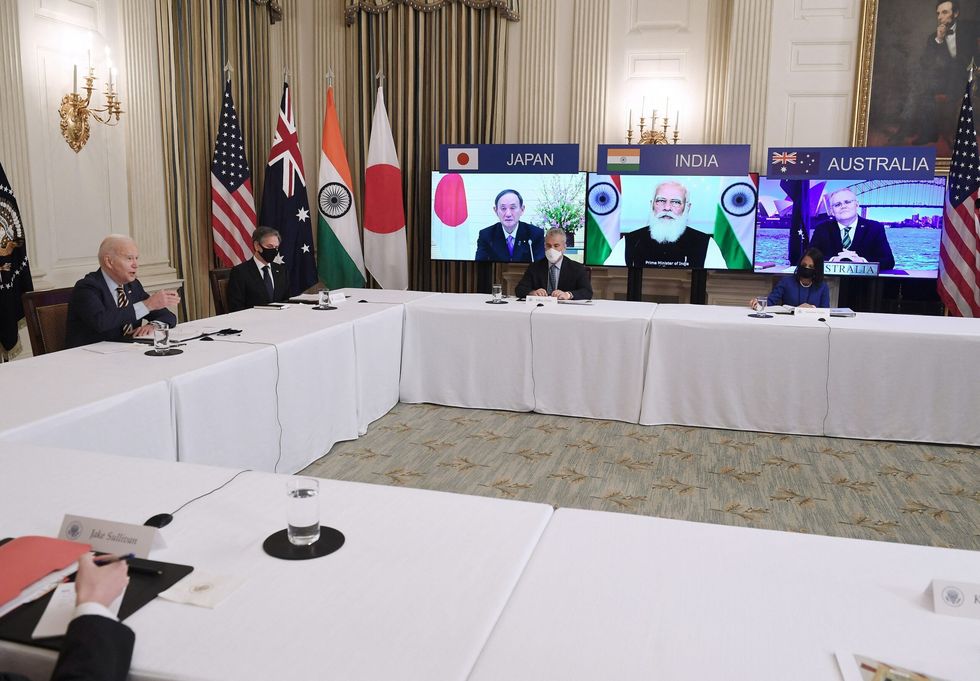INDIA-CHINA relations are expected to remain antagonistic for the foreseeable future, a new report has said, citing a lack of trust as well as engagement.
According to the 11th edition of the Asia-Pacific Regional Security Assessment by the London-based thinktank, the International Institute for Strategic Studies (IISS), New Delhi’s expanding defence role and partnerships will likely further contribute to the increasingly competitive nature of Indo-Chinese ties. It was launched last Friday (31) at the start of the Shangri-La Dialogue in Singapore.
The report also noted that as “strategic” competition grows between the US and China, India’s role as an alternative defence partner to both Beijing and Washington will also increase.
Delhi’s defence focus is primarily on the Indian Ocean region and will remain so, though it is also seeking to bolster its presence in southeast Asia and the Pacific Ocean, the report said.
“Over the last decade, the Asia-Pacific Regional Security Assessment has sought to reflect upon and deepen our understanding of the challenges in the AsiaPacific. In that time, the competing impulses of great-power strategic competition and the often elusive quest for a stable regional order have become sharper and the stakes increasingly higher,” said the report’s editor, Dr Evan A Laksmana.
India will continue to balance its engagement with as many regional partners as possible in the Asia-Pacific while also participating with China in multilateral groups, according to the assessment.

“There is a gap between India’s perceived primary challenge of China and its secondary ones of terrorism and Pakistan. This gap has never been so wide in the minds of the Indian security establishment and is only expected to further widen over the next decade,” the report said.
“For India, being a preferred security partner through defence partnerships increases its regional presence and enhances its influence and trust with Asia-Pacific countries and counters China’s presence.”
Delhi’s “military clout” remains below that of Beijing’s, as China’s defence budget is $219 billion (£171bn), compared to India’s $74bn (£58bn).
India’s defence diplomacy tools will continue to be ministerial and servicechief visits, with combined military exercises, the report added. However, managing resources will be an important consideration for the country.
It said, “India’s 75 military exercises in 2023 contradict the perception that it lacks the capacity for defence engagement. The country accomplished this by optimising the allocation of resources, such as ships, across its annual defencediplomacy and exercise cycles.
“This greater focus on delivery could be further enhanced if India undertakes more joint patrols and regional ‘divisions of labour’ with partners to ensure an effective and efficient use of resources.
“This approach may yield positive results in the next decade if India and its partners develop a common understanding based on trust, capabilities, and advanced interoperability.”
According to the IISS, India’s security concerns regarding China in 2024 are significantly greater than they were in 2014, especially after the violent Galwan Valley clash in June 2020, which resulted in the deaths of more than 20 Indian soldiers. The clash also gave further impetus and rationale to expand and deepen the defence ties between India and the US.
“Relations between India and the US underwent a significant transformation due to the landmark India-US civil nuclear-cooperation agreement signed in 2008.
“Since then, the US has become India’s all-round defence partner in providing arms and technology. Indeed, as the security threat from Beijing and Islamabad worsened, India’s arms procurements from the US increased from $200 million (£157m) in 2000 to over $20bn (£15.7bn) worth, per contracts signed, by 2020.”
It added, “China’s exertion of pressure on economic, military, and security fronts unsettles its neighbours, including India, despite their dependence on Beijing’s economic growth for their own prosperity.”
While countering China remains a mutual priority for Quad members – India, US, Japan and Australia – Delhi also aims to establish itself as a viable alternative to China and a dependable regional partner in the Indian Ocean, southeast Asia, and the Gulf, the report said.
Read Also: Coach Stimac defines Indian football team’s goals
“India sees its rivalry with China in the Indian Ocean and among nearby countries as a zero-sum game, particularly following the Galwan incident. The Colombo Security Conclave (CSC) plays a crucial role in this regard, serving as a prominent forum for security discussions among Indian Ocean island nations. Led by national security advisers (NSAs), the CSC involves India, the Maldives, Mauritius, and Sri Lanka, with Bangladesh and the Seychelles as observers. Its focus spans maritime security, counter-terrorism, and cybersecurity. Through the CSC, members can collectively address their strategic concerns and challenges in the Indian Ocean region,” the report said.
India has conducted joint patrols with Australia and France. It also increased cooperation with both on maritime interests, including its first naval exercises with the Royal Thai Navy, as well as with ASEAN and European Union memberstate naval assets, and the first India-Indonesia-Australia and India-France-UAE maritime-partnership exercises.
It added that the growing frequency of India’s combined exercises and presence in the Indian Ocean and southeast Asia demonstrates the Indian Navy’s priority to strengthen defence relations within these regions.
The report also urged governments in the Asia-Pacific to examine the role of disinformation campaigns across the region.

















